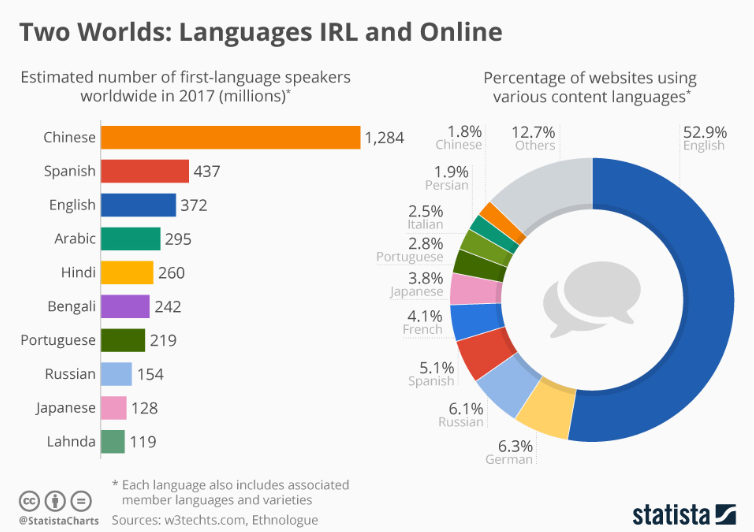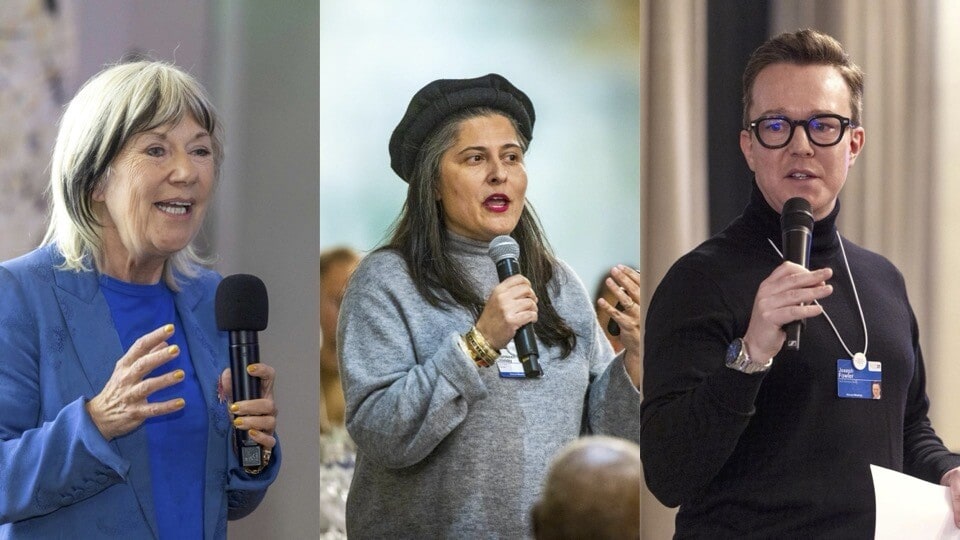The internet has a language diversity problem

The English language is the second most spoken language in the world, behind Chinese. Image: REUTERS/Tim Wimborne
“If you talk to a man in a language he understands, that goes to his head. If you talk to him in his language, that goes to his heart,” former South African President Nelson Mandela said.
But how does language affect your experience of the internet?
For those who cannot speak or understand English, much of the internet is out of reach. Native English speakers – around 5% of the global population – probably don’t notice a difference between real life and online life, since more than half of the web is in their language.
While Chinese is the world’s most spoken language, at 16%, fewer than 2% of the top 10 million websites are written in Chinese, according to W3Techs, which analyzes websites. The nation also has the most internet users in absolute terms, at a whopping 772 million, according to the China Internet Network Information Center.
Online dominance
With 10 languages accounting for nearly 90% of the top 10 million websites, a tiny fraction of the world’s 7,097 languages dominate online life.
And discrepancies are stark: Spanish, which has 437 million native speakers, accounts for just 5.1% of websites, while German is the second most common language online, but isn’t one of the top 10 in speaking terms.
The absence of so many languages creates a so-called digital divide, that may restrict access to data and information. While, in one sense, the internet opens the door for any one to create content in any language, many languages are not present on the web.
UNESCO has underscored the role linguistic diversity can play in development, encouraging its member states to invest in promoting multilingualism on the internet.
Local languages
“Nations, communities and individuals without access to the internet and its resources will certainly be marginalized,” UNESCO said on its website. “Speakers of non-dominant languages need to be able to express themselves in culturally meaningful ways, create their own cultural content in local languages and share through cyberspace.”
Still, change may be coming, since part of the reason the internet is so English language heavy is down to legacy: The internet was created by an Englishman, Tim Berners-Lee and many of its early users were in North America. And Internet World Statistics show growth in users speaking Chinese, Japanese, Spanish and Arabic far outpaced those speaking English in the eight years to 2018.
Don't miss any update on this topic
Create a free account and access your personalized content collection with our latest publications and analyses.
License and Republishing
World Economic Forum articles may be republished in accordance with the Creative Commons Attribution-NonCommercial-NoDerivatives 4.0 International Public License, and in accordance with our Terms of Use.
The views expressed in this article are those of the author alone and not the World Economic Forum.
Stay up to date:
Digital Communications
Related topics:
Forum Stories newsletter
Bringing you weekly curated insights and analysis on the global issues that matter.
More on Arts and CultureSee all
Elena Raevskikh and Giovanna Di Mauro
October 22, 2025







